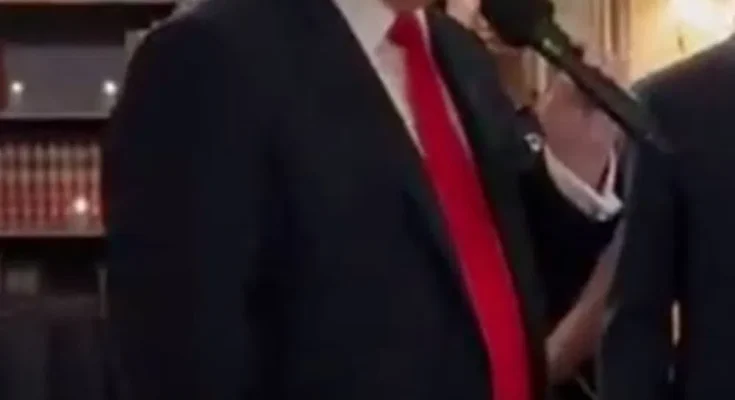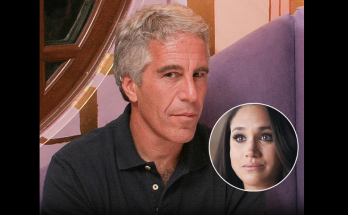Former U.S. President Donald Trump once again captured headlines over the weekend after making remarks during a speech at his Bedminster, New Jersey, golf club that immediately began circulating across social media platforms. Known for his off-the-cuff speaking style, Mr. Trump was addressing a crowd at a private gala when he veered from prepared comments to share his thoughts on a high-profile case involving conservative activist Charlie Kirk and, in the process, made an unusual observation about “smart people.”
The Setting: A Private Event at Bedminster
The Bedminster gala was described by attendees as a lively evening that mixed political supporters, donors, and guests. Mr. Trump, who has frequently used the venue for public and private gatherings, spoke for several minutes about current events, including the loss of Mr. Kirk, a well-known conservative figure who was killed while speaking at Utah Valley University on September 10.
During this segment of his remarks, Mr. Trump referenced the arrest of a 22-year-old suspect, Tyler Robinson, who was taken into custody by the FBI on September 12. According to Mr. Trump, the case was especially tragic because Robinson’s father reportedly cooperated with law enforcement. “I actually asked somebody in the FBI how often does that happen … and he said almost never,” Mr. Trump told the audience.
The Comment That Drew Attention
While reflecting on the incident, Mr. Trump offered a remark that quickly became the most-shared moment of the evening: “Smart people don’t like me, you know? And they don’t like what we talk about.” Audience members were reported to have laughed at the comment, though online reactions were more divided.
Supporters have long argued that Mr. Trump’s willingness to say controversial things demonstrates authenticity and a refusal to conform to “political correctness.” Critics, however, seized on this latest line to argue that he had inadvertently insulted his own base.
Social Media Reaction
Within hours of the clip appearing on Twitter, Facebook, and TikTok, thousands of users were weighing in. Some said the remark sounded like an attack on his own supporters.
“Did he just call his base dumb?” one user wrote. Another commented, “He can say anything; his followers will still support him.” A third described the statement as “the first genuinely candid thing he’s said in a long time.”
Other users defended Mr. Trump by pointing out that he may have been referring to the political elite or the media rather than his everyday supporters. “He’s always said the elites dislike him,” one person wrote. “That’s probably what he meant.”
A Pattern of Polarizing Moments
This is not the first time Mr. Trump has generated viral headlines over unscripted remarks. Throughout his political career, he has repeatedly framed himself as an outsider disliked by “smart” or “elite” circles but embraced by ordinary Americans. That framing has helped energize his base but also made him one of the most polarizing figures in U.S. politics.
Political analysts note that these types of comments serve a dual purpose: they reinforce his image as someone unafraid to speak his mind, and they keep his name trending on social platforms — a valuable asset in the digital age where online visibility translates into influence.
The Broader Context
The tragedy involving Charlie Kirk has been deeply felt across conservative circles. Mr. Kirk’s organization, Turning Point USA, has been a major force in youth political engagement. The suspect’s arrest has raised questions about radicalization, mental health, and security at public events. By bringing up the case during his speech, Mr. Trump aligned himself with his supporters’ grief and concerns, though his “smart people” remark shifted much of the attention back to himself.
Continuing the Conversation
Whether seen as a slip of the tongue or a moment of unvarnished honesty, Mr. Trump’s remark illustrates how even a single line from a speech can become a flashpoint in the modern media environment. His comments at Bedminster demonstrate how quickly a topic can trend, drawing responses from supporters and detractors alike and sparking days of online debate.
As the 2024 election season unfolds, such moments are likely to recur. For Mr. Trump, who has long used controversy as a political tool, the episode may simply be another example of his ability to command attention and keep his name at the forefront of public conversation.




